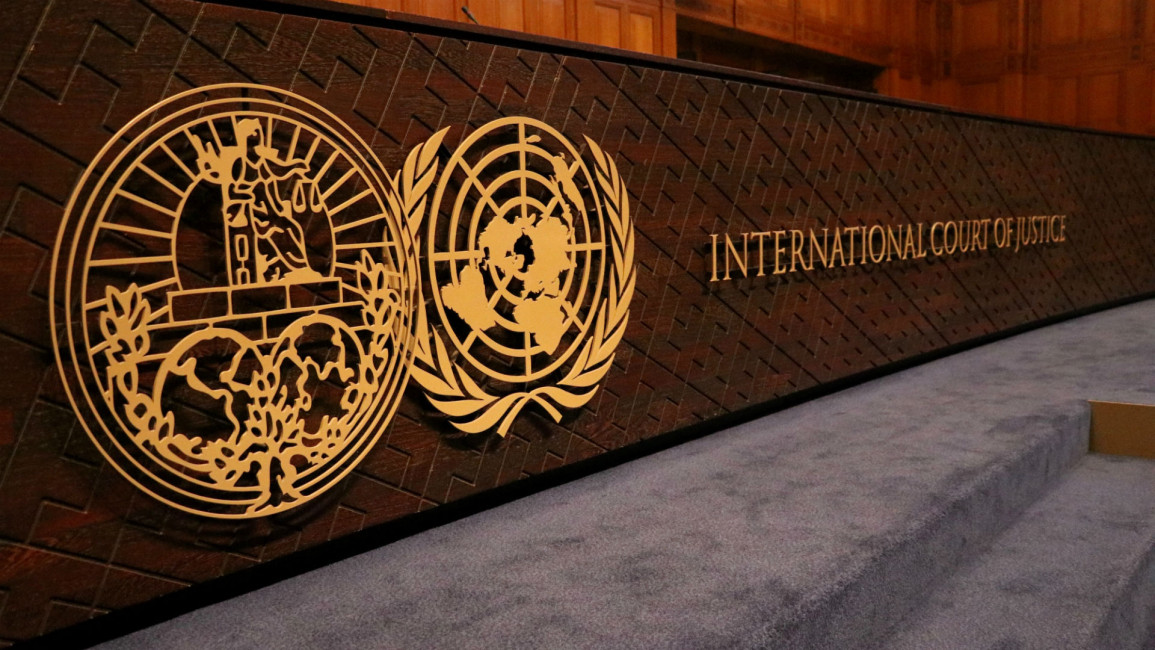Tehran heads to court, accusing US of targeting Iran's economy
Iran appeated in front of the UN's top court accusing Washington of plotting Tehran's "economic strangulation" and has demanded the suspension of US nuclear-linked sanctions against the country.
The Islamic Republic on Monday launched a suit at the International Court of Justice (ICJ) in The Hague over US President Donald Trump's decision to re-impose the sanctionson Iran, after they were lifted following a 2015 accord.
Iran says Trump's move breaches a 1955 treaty. It told the court the measures were already devastating its economy and threatening the welfare of its citizens.
"The United States is publicly propagating a policy intended to damage as severely as possible Iran's economy and Iranian nationals and companies," Tehran's lawyer Mohsen Mohebi told the court.
"This policy is nothing but naked economic aggression against my country. Iran will put up the strongest resistance to the US economic strangulation, by all peaceful means."
US lawyers are due to give their response to the arguments put forward by Tehran on Tuesday.
Sanctions were lifted under a 2015 multilateral agreement between world powers and Iran, in return for Tehran committing not to pursue nuclear weapons.
But Trump re-imposed unilateral sanctions three weeks ago. He said they were needed to ensure Iran never builds a nuclear bomb.
A second wave of punitive measures are due to hit Iran in early November, targeting its vital energy sector including oil exports.
'Irreparable prejudice'
The US measures have added to Iran's economic woes, helping to fuel strikes and protests from across the country and political spectrum.
In the latest blow, Iran's parliament impeached Economy Minister Masoud Karbasian on Sunday.
Tehran filed its case before the ICJ in late July, calling on the Hague-based tribunal's judges to order the immediate lifting of sanctions pending a definitive ruling.
It said the sanctions would cause it "irreparable prejudice", arguing they breach the 1955 Treaty of Amity and Economic Relations between Iran and the United States.
 |
Iran's lawyers said the US sanctions threaten tens of billions of dollars' worth of business deals with foreign companies. |  |
The ICJ is expected to take a couple of months to decide whether to grant Tehran's request for a provisional ruling. A final decision in the case may take years.
The 2015 deal was signed by Iran and the five permanent members of the United Nations Security Council plus Germany.
Trump, who took office in 2016, called it a "horrible one-sided deal" during his election campaign.
He said it "failed to achieve the fundamental objective of blocking all paths to a Iranian nuclear bomb".
To the horror of the other signatories, Trump pulled out and announced in May that he would reinstate sanctions.
'Neither war, nor negotiations'
Tehran says that the new sanctions are already hurting its economy. Iran's currency the rial has lost around half its value since April.
In a court filing at the ICJ, Iran's lawyers said the US sanctions threaten tens of billions of dollars' worth of business deals with foreign companies.
International companies including France's Total, Peugeot and Renault, and Germany's Siemens and Daimler, have suspended operations in Iran since Trump announced the US withdrawal from the nuclear deal in May.
Air France and British Airways announced Thursday they would halt flights to Tehran next month, saying they were not commercially viable. The British carrier added, however, that the decision was unrelated to the fresh sanctions.
Trump said the sanctions would turn up the financial pressure on Tehran to come to a "comprehensive and lasting solution" regarding its activities such as its "ballistic missile programme and its support for terrorism".
Iran's Supreme Leader Ayatollah Ali Khamenei this month appeared to rule out any immediate prospect of talks, saying "there will be neither war, nor negotiations", with the US.
Washington's lawyers will present their case on Tuesday, with a second round of arguments on Wednesday and Thursday. Experts expect the US to challenge the ICJ's jurisdiction.
The ICJ was set up in 1946 to rule in disputes between countries.



